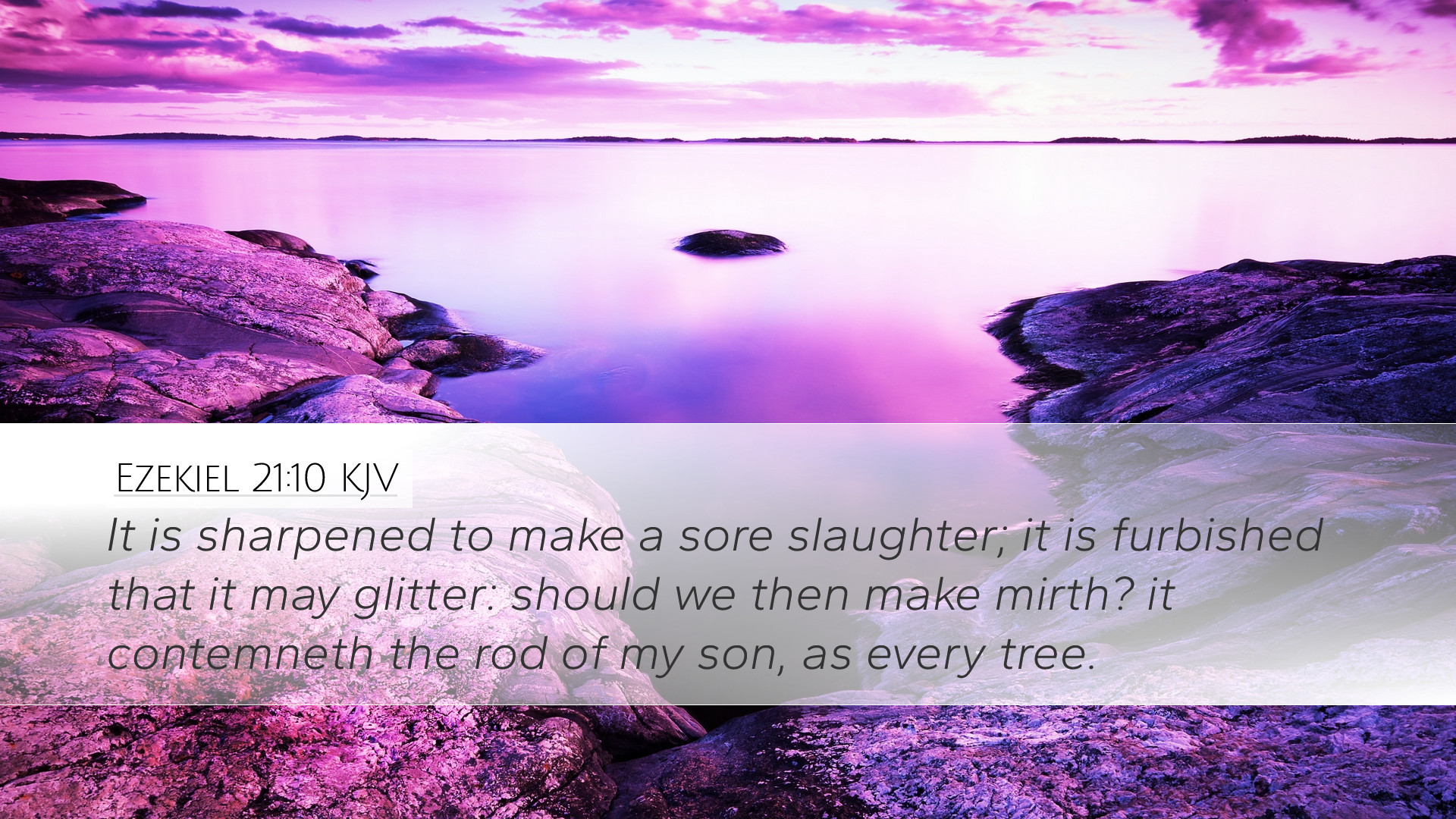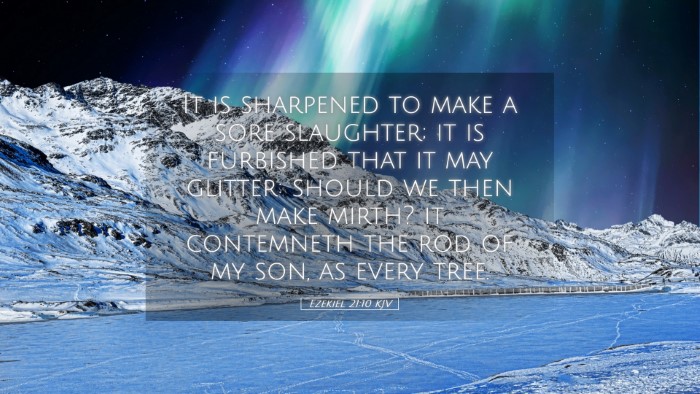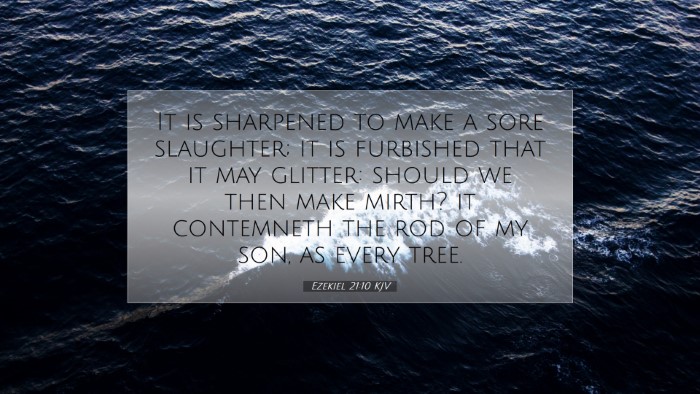Ezekiel 21:10 Commentary
Verse Reference: Ezekiel 21:10
"It is sharpened to make a sore slaughter; it is furbished that it may glitter: should we then make mirth? it contemneth the rod of my son, as every tree."
Contextual Overview
The Book of Ezekiel is set against a backdrop of impending judgment and destruction upon Jerusalem due to the corruption and idolatry of the people. Chapter 21 serves as a prophetic announcement of God's judgment through Babylon. This verse is pivotal in portraying the severity of the judgment and serves to evoke a serious reflection on the sins of the nation.
Commentary Insights
Matthew Henry's Commentary
Matthew Henry emphasizes the metaphorical language used in this verse, interpreting the sword as a representation of God’s instruments of judgment. To be "sharpened" symbolizes a readiness to execute divine wrath, while "furbished" suggests that it has been prepared to strike. Henry points out that this reflects the seriousness of God’s judgment upon Israel, prioritizing the need for repentance among the people.
Furthermore, he discusses the rhetorical question posed: "should we then make mirth?" This suggests the absurdity of merriment in light of impending doom. Henry draws attention to the incongruity between celebration and the reality of God's judgment. The reference to "the rod of my son" indicates a rejection of peace and discipline, pointing to the consequences of continual disobedience.
Albert Barnes' Commentary
Albert Barnes provides a detailed analysis of the significance of being "sharpened to make a sore slaughter." He asserts that the sharpness of the sword signifies not only the capability of inflicting severe judgment but also reflects God’s determination to purify His people through this trial. He notes that the phrase "should we then make mirth?" serves as a call to self-examination, urging the Israelites to confront the gravity of their situation.
Barnes further elaborates on the image of the sword glittering, which points toward its imminent usage and the destructive capacity that it holds. He emphasizes that God’s rulings are not without reason; they are driven by the need for justice. Barnes implies that the sword, or divine judgment, is the consequence of Israel's unfaithfulness to God’s covenant.
Adam Clarke's Commentary
Adam Clarke approaches this verse with an earnest plea for understanding the sword as not simply a weapon but as an expression of divine will. He identifies the sword’s sharpening as symbolic of the severity of the coming judgment. "It is furbished that it may glitter" is interpreted by Clarke as indicating how God’s warnings are clear and shining, yet they are not heeded by the people, intensifying the tragedy of their fate.
Clarke also focuses on the phrase "contemneth the rod of my son." He explores the implications of rejecting divine correction. According to Clarke, this signifies a blatant disregard for God's instruction and the wisdom He provides through suffering. Thus, he concludes that the neglect of repentance leads to a collective downfall, as the formidable judgment is compared to a masterful weapon, prepared and ready to fulfill its purpose.
Theological Reflections
The insights from these commentaries collectively present a multifaceted understanding of Ezekiel 21:10. This verse serves as a profound reminder of the consequences of sin, the seriousness of divine judgment, and the ultimate need for humility and repentance. The imagery of the sword captures the gravity of the nation's disobedience while inviting contemporary readers to reflect on their own spiritual conditions.
-
Judgment and Mercy:
The sharpness of the sword emphasizes the dual themes of judgment and mercy. Although God is just in punishing sin, He is also merciful in His invitation to return to Him.
-
Call to Repentance:
The question "should we then make mirth?" challenges individuals and congregations today to assess their relationship with God. In seasons of sinfulness, joy should not overshadow the need for repentance.
-
God's Sovereign Will:
The furbishing of the sword represents God's meticulous orchestration of events. Understanding this brings a sense of reverence and awe towards His sovereignty over history and personal lives.
Conclusion
Ezekiel 21:10 stands as a powerful reminder of the holiness of God and the seriousness with which He addresses sin. Through the collective analysis of these commentaries, we glean a richer understanding of the nature of divine judgment, the importance of heeding God’s warnings, and the essential call to repentance. It invites each reader—whether pastor, student, theologian, or scholar—to engage deeply with their spiritual walk, consider the state of their community, and align themselves with the divine purposes of holiness and righteousness.


